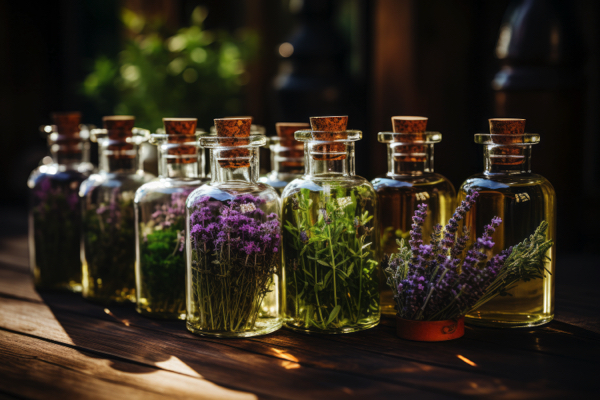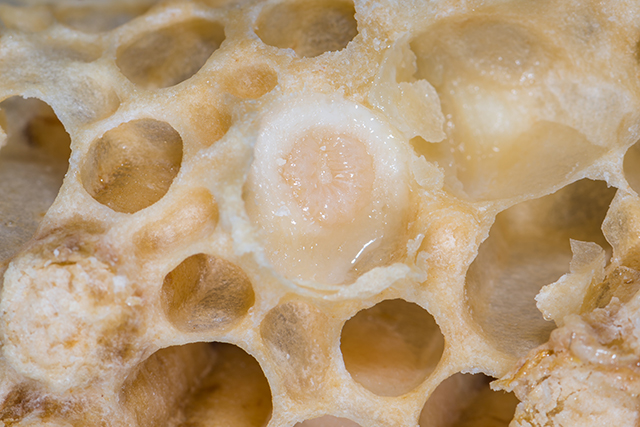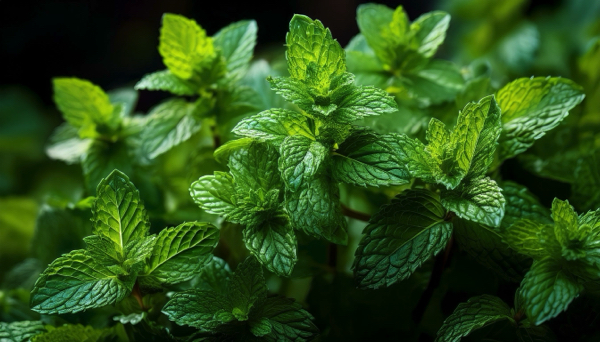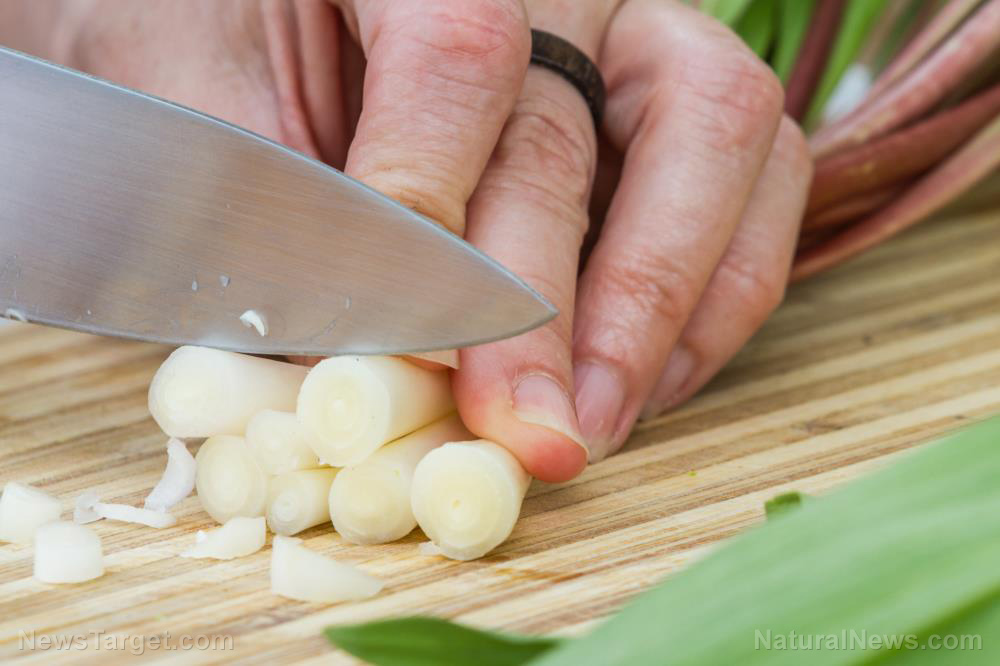Using essential oils to heal the gut
12/11/2024 / By News Editors

Not only can essential oils heal your gut, but they also play a role in maintaining gut health!
(Article republished from GreenMedInfo.com)
For decades we’ve been hard on our digestive systems, and it just keeps getting worse. The food we consume plays a direct role, and also our lifestyle factors, such as the stress, can cause damage to our gut. Gut health can be fostered by using essential oils, but what if there is already damage? If you have already reached adulthood, there is a high possibility that this applies to you.
This is where natural therapies like essential oils come into play, which can not only heal the gut, but also help prevent damage from occurring in the first place!
Common Problems in The Gut
Your gut may already be damaged without you knowing it. This may be because the bacterial balance is off due to your diet and your immune system is now malfunctioning. It may also be because your immune health has been off kilter due to environmental toxins and even negative thoughts.
The gut serves as the central part of most of our body. If you think you don’t have gut problems or related issues, it’s always best to look at your history, lifestyle, and diet. Then do a quick scan of symptoms, keeping a look out for the cardinal signs of leaky gut:
- Seasonal allergies
- Chronic digestive upset
- Brain fog
- Autoimmune disease
- Chronic fatigue
- Chronic pain
- Skin outbreaks
- Mood disorders (especially depression)
Addressing 5 Common Gut Issues with Essential Oils
There a number of natural approaches one can take to mitigate these symptoms and I have found that essential oils top the charts for these specific five conditions.
1. Leaky Gut – Leaky gut syndrome is a common gastrointestinal problem that has been gathering a lot of attention lately because research continues to link it to a number of other health issues and diseases. The SAD (Standard American Diet), stress, toxic overload, and bacterial imbalance people battle has certainly contributed to the epidemic that now affects millions of people globally.
The gut is tricky to treat because it’s so far down the GI tract so leaky gut is a good one to start off with. The only way to ensure that essential oils can reach the gut is to use an enteric coated, time-release capsule.
- Peppermint and caraway oils have been proven to soothe information like no other blend – taken internally. (1) This combination is also highly effective at promoting healthy gastrointestinal motility. (2)
- Thymol and carvacrol (thyme and oregano oils) are fantastic for promoting intestinal integrity and immune responses. (3)
- Additionally, oregano essential oil has been proven to repair the gut lining – thus preventing chemicals from leaking out of the gut. (4)
All these can be applied topically over the abdomen. 2-3x per day. At a 5% dilution (30 drops of essential oils per one ounce of carrier oil).
2. SIBO & Dysbiosis – The microbial balance in the gut can be shifted in many ways, and it’s usually categorized as dysbiosis. A particular form of dysbiosis is that of SIBO (Small Intestine Bacterial Overgrowth), which occurs when bacteria is found in the small intestines. Dysibiosis and specific conditions of SIBO are related to other health issues such as IBS and metabolic disorders. (5)
When essential oils are able to exhibit symptom relief without damaging good bacteria, then it is usually recommended to use them for SIBO and other gut flora issues. In 2012, a probiotic study (beneficial bacteria in supplement form) found certain essential oils to work well with their formula, and was able to create a synergistic effect which had increased benefits. (6)
A few years before that, eight essential oils were analyzed to test their effects on gut dysbiosis (bacterial imbalance). The findings included caraway, lavender, and bitter orange which became examples of essential oils that work well with beneficial bacteria in the body. (7)
The studies showed that essential oils are affecting detrimental bacteria without harming the body and beneficial strains. Further research for dosing and ideal treatments methods would be very exciting!
3. IBS – Irritable Bowel Syndrome was once considered a non-diagnosis. This was the term given when doctors had no idea what was going on to begin with. Now, we know that IBS not only affects more than 10% of the global population, but that fewer than 30% will consult a doctor for a diagnosis. (8) IBS is usually managed with diet and medication, but using essential oils have been proven helpful to control the symptoms, especially the ones with enteric coated capsules to help make it past the stomach.
An extensive review conducted in 2008 shows peppermint oil exhibiting significant improvement over a placebo, along with dietary fibers. Both of these stood alongside antispasmodic medications in efficacy. (9) This study shows that it is best to use enteric coated capsules to ensure that the oil reaches the intestines.
4. GERD – Technically the “gut” is the intestines, but we usually use the term interchangeably with our digestive system. Digestive trouble can start quickly in the esophagus as acid reflux or GERD. These are problems related to stomach acids (both too much and too little) as well as a faulty “flap” that keeps the acid out of the esophagus. One way to treat GERD is with essential oils that protect the stomach and improve digestive processes.
Ginger goes along well with turmeric as indicated in a study released in January 2015. (10) The researchers tested the antioxidant levels in rats with and without turmeric and ginger essential oils and compared the results. The oils seemed to increase antioxidant levels and reduced damages to the stomach wall. Knowing this fact, culinary skills would serve as a benefit to help boost your digestive system in your meals.
5. Nausea – Nausea is a common problem within our stomach, it is associated with a number of other ailments and can have symptoms that are unpleasant to debilitating. People who experience nausea know that a scent has a major impact on how you feel, which may be positive or negative. Essential oils that can be inhaled are a useful tool for managing nausea. Research studies show that peppermint and ginger help alleviate nausea. (11)
Citrus oils can also be beneficial. Lemon is very helpful for morning sickness as well as nausea in pregnancy. (12) Aroma sticks are also very helpful and can be a quick help when you are feeling nauseated.
5 Key Essential Oils to Heal the Gut
Essential oils can be beneficial to your health; however, you have to be cautious as well. Always dilute them properly, enjoy diffusing them regularly and be sure to only consume them in a capsule to protect the mucous membranes in your mouth and esophagus.
- Peppermint – Peppermint essential oil is well known for its digestive healing capabilities. Peppermint has always been indicated for IBS via enteric coated capsules. (13) This was again revisited in 2013, and was mentioned along with coriander and lemon balm for their effectiveness. (14)
- Thyme – is antimicrobial by day, and a gut healer by night, and thyme is marked as a superhero in the world of gut health. For SIBO, thymol and geraniol are “effective in suppressing pathogens in the small intestine, with no effect to beneficial commensal colonic bacteria in the distal gut.” (15) Thymol is the major component of thyme, while geraniol is found in rose oil.
- Lavender – We have seen that lavender is effective against dysbiosis; it also has anti-inflammatory and healing properties as well. Lavender is one of the most effective anxyolitic (anti-anxiety) essential oils, and has been tested as a commercial internal preparation. (16) Lavender is a key component to any healing protocol whether to calm anxiety, to improve gut health, or be a major part of nearly any healing regimen.
- Cumin – Studies on IBS symptoms and essential oil treatments analyzed 2% of cumin essential oils in 57 patients with IBS. At the end of the four-week trial, symptoms including pain, bloating, and elimination problems decreased drastically. (17)
- Oregano – As mentioned above, oregano essential oil has been proven to repair the gut lining, which is key because so many people suffer from leaky gut. Try consuming 2-3 drops with olive oil in an enteric-coated capsule two times per day as a remedy.
If you’re serious about rebuilding your gut, then spend some time researching essential oils and make them part of your healing protocol.
Read more at: GreenMedInfo.com
Submit a correction >>
Tagged Under:
alternative medicine, cumin, cures, digestion, digestive health, essential oils, food science, functional food, gut health, gut microbiota, health science, herbal medicine, herbs, lavender, natural health, natural medicine, naturopathy, oregano, peppermint, plant medicine, remedies, thyme, Xpost
This article may contain statements that reflect the opinion of the author
RECENT NEWS & ARTICLES
consumerwellness.info is a fact-based public education website published by consumerwellness.info
All content copyright © 2023 by consumerwellness.info
Contact Us with Tips or Corrections
All trademarks, registered trademarks and servicemarks mentioned on this site are the property of their respective owners.




















